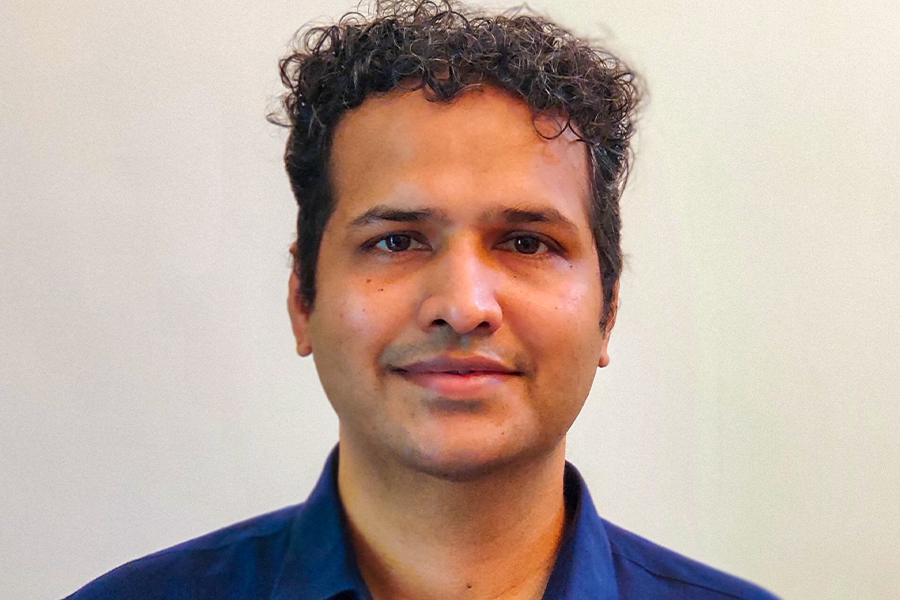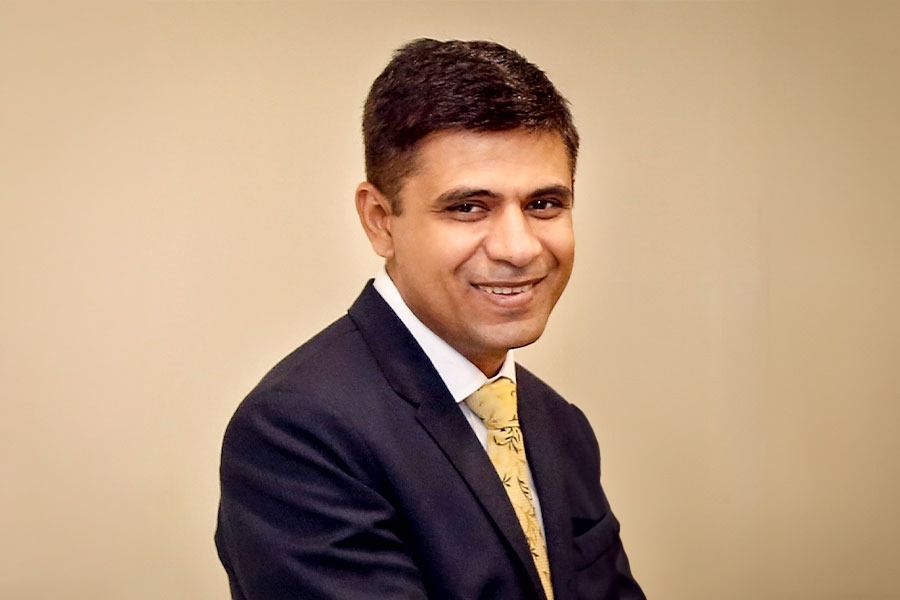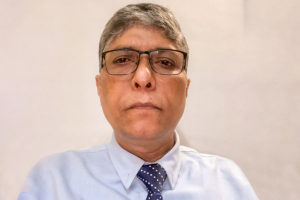The IP waiver is an ideological answer to a real-world situation
Dr. Yogesh Pai, Assistant Professor of Law and Co-Director, Centre for Innovation, IP and Competition, National Law University, opines that the IP waiver proposal reflects on the collective failure of the global community to come together in times of crises to resolve such issues multilaterally.

IBT : In this battle between the moral right to live and the intellectual right to innovate in the context of the IPR waivers for COVID-19 vaccine, what is the middle ground you propose?
Dr. Yogesh Pai: The IP waiver proposal is an outcome of a serious confusion and conflation of several distinct issues, particularly in the context of both innovation and access to vaccines. These pertain to technological access, incentives for scaling-up of production and pricing-access issues.
As far as technology access is concerned, five out of eight known global vaccine technologies are licensed/available in India (i.e. Oxford-AstraZeneca/SII, Novovovax/SII, J&J/Biological E, Gamaleya Institute-RDIF/Dr. Reddy’s and others). Bharath Biotech-ICMR’s vaccine technology is indigenous and some PSUs are willing to produce it. No one in India has shown much interest in producing the Chinese vaccine (by Sinovac), perhaps owing to its lesser efficacy and use of a conventional technology platform. Moderna, which has the latest mRNA vaccine technology, is reportedly in talks with Cipla. Pfizer-BioNTECH is also interested in delivering vaccines for India. But both Moderna and Pfizer have expressed regulatory concerns (e.g. indemnity issues), which are not really IP issues.
When technology licenses are available, scaling-up vaccine production is an entirely different issue. The problem in scaling-up is that because vaccine markets are monoposonistic in nature (where Government is usually the largest/single buyer), it requires advance market commitments (AMCs). Such AMCs were concluded by several countries such as the U.S., U.K. and the E.U even before the vaccines were approved. This explains the current global vaccine inequities because other countries, including India, did not make similar commitments at the right time and at the scale in which we required. It is also true that India’s plans were messed up because India hoped that a billion doses of the Novavax vaccine would be produced by SII in India. But the vaccine is not yet out.
The scaling-up issue is actually a financing question to resolve the production incentives problem, which is not really an IP issue. Investments in scaling-up for vaccines are sunk investments. Similarly, scaling-up production can be a difficult and time consuming task requiring months, if not years, due to the need for robust quality control, skilled human resources and technology absorption capabilities. Furthermore, access to material inputs for making vaccines is also important since we have already seen it in the context of the restrictions imposed by the U.S. Government on export of certain critical material inputs required for producing vaccines. Again, this is an issue that relates to export controls and is not an IP issue.
The pricing question in the context of vaccines has two components- IP pricing (royalty payments etc.) and margins for vaccine producers. These are really hard issues for negotiations since the vaccine market is monopsonistic (i.e. monopsony cuts into monopoly). It is also important to note that each vaccine producer is interested in competing with other players for the same demand. It is clear that many western governments as well as the Indian Government were able to get some cheaper deals due to upfront volume discounts and early purchases. The Global alliance through COVAX is another example bridging the vaccine inequity through aggregating procurement and distribution for LMICs.
So it’s really a question of how robust and efficient our national and global procurement systems are to understand the economic complexities of the vaccines market and act accordingly. Again, the pricing issue in monopsonistic markets has to do with AMCs and procurement at the right time. The IP royalty issue may or may not be substantial depending on how competition operates in such markets. E.g. SII is reported to have paid Rs 75/- per jab for the AstraZeneca/Oxford vaccine.
As I explain below, the waiver cannot resolve any of these issues since vaccine tech-transfer requires active and synergistic collaboration between firms owing technologies and those manufacturing the vaccines.
IBT: Do you think that IPRs are a charade in the name of vaccine nationalism embraced by many wealthy nations? How can the world move to vaccine equity and what role can India play in addressing the glaring disparity in the global access to vaccines?
Dr. Yogesh Pai: Governments can often be benevolent, and yet short-sighted. If Governments did have the capacity to come out with vaccines (i.e. from early stage labs to a final shot in the arm) without getting the private sector involved, they would likely have done it even without IP as it is fully tax funded. But that’s not what happened because governments do not have such capacities to resolve all collective action problems in our society.
I look at these issues in the context of actual complex realities of innovation and global access inequities. There is a high risk of failure and opportunity cost of capital in R & D. We have seen many such failures and delays in vaccine innovation. When governments publicly funded some vaccines to accelerate interest among private players, it was guaranteed based on the existence of IP protection. We don’t know if private firms would be interested in engaging in vaccine innovation without such protection. It’s always possible to imagine a world without IP, but the reality is always in stark contrast.
Perhaps more ex-ante (i.e. before the event) conditions could have been attached to public funding for COVID -19 research (e.g. minimum and time bound guaranteed production and delivery to LMICs on par with their own citizens as an ex-ante funding criteria). But that would require more risky and upfront payments to be made by the western governments or even in the case of the Indian government that collaborated with the private sector. Some rich countries and philanthropists have actually tried bridging the divide by funding COVAX. But again, there is a huge demand supply mismatch apart from funding constraints as far as LMICs are concerned.
A situation like a pandemic would have actually required all countries to sit together and resolve such issues. From the beginning of the pandemic, countries did not fully pursue an open, transparent and global approach towards vaccine innovation, production and access. This is why India and South-Africa made the IP waiver proposal at the WTO. In fact, the IP waiver proposal reflects on the failure of the global community to come together in times of crises to resolve such issues multilaterally. We always knew vaccines are a global public good. The question is why didn’t we work together towards finding workable solutions on the required scale and within a time-frame?
IBT: What is your opinion on India’s demand to waive off the IPR for COVID-19 tests, drugs, and vaccines at the WTO? What are the pros and cons of this move?
Dr. Yogesh Pai: The demand for a waiver is based on a mistaken assumption that formal IP protections (like patents) are great barriers. Patents actually are legal barriers and not structural barriers. Trade secrets are the real barriers. As I have explained elsewhere, vaccine development requires active synergistic engagement between firms. These are technologies that are difficult to copy and get to the market within the short time-frame in which we need them. In any case, the TRIPS agreement provisions on Trade Secrets does not bar anyone from reverse-engineering technologies. But that would require such companies to spend a lot of time doing it and also engage in their own clinical trials since every biological product needs separate trials.
Furthermore, legally operationalising the waiver to engage in forced technology transfer (FTT) is almost an impossibility without strong coercive actions. It has other socio-economic costs. The wisdom among the proponents of the waiver is that once the waiver is done, countries could simply access technologies and vaccines could be produced in different parts of the world without paying any royalties. It’s a great idea on which time should not be wasted. Tech-transfer is an extremely complex challenge even in the best of circumstances (i.e. voluntary), which the proponents of the waiver think can be done by removing legal barriers and engaging in FTT. I think the waiver proposal is an ideological answer to a real-world situation. In my opinion, it will not further the cause of scaling-up of vaccine production quickly.
IBT: If the WTO fails to reach a consensus on the proposed IPR waiver, what options do countries have to address the vaccine supply problem?
Dr. Yogesh Pai: Countries should seek real solutions by understanding the real-world problems. The real problem today is investing in scaling-up and AMCs that are required to be made. The principle of common but differentiated responsibility (CBDR) would require all countries to do their bit in global scaling up of vaccines by establishing joint funding mechanisms to produce and distribute equitably across several nations (also based on severity of the spread). Rich countries will have to do more in terms of COVAX funding for LMICs. The royalties that IP holders receive under such procurement should be always negotiated on CBDR principle. Simply, buying out technologies is another option either directly or through auctions as suggested by economists like Prof. Arvind Panagariya. Both track-1 and track-2 multilateral dialogues are the only ways towards resolving our collective action problems. National approaches will widen inequities and cause further delays in rolling out vaccines.
IBT: If India decides to encourage patent holders to voluntarily license their patents to manufacturers, what impact will it have on vaccine production and India’s pharmaceutical industry?
Dr. Yogesh Pai: Voluntary licensing is already happening in India. The question right now is creating financial incentives for mass-scale production to supply to India and the world. It requires a stable and coherent policy on financing, procurement and pricing.
As suggested above, global approaches are needed for vaccine financing for LMICs. India has a global responsibility as the pharmacy of the world. Diverting vaccines for Indians may seem like an immediate solution right now due to the spread of the second wave. But we all know that it is very short-sighted. Similarly, countries that have cornered additional doses or have spare vaccines must divert them to other countries depending on the severity of the virus spread and fatality. This kind of race to the bottom must immediately stop.
This is a global problem that requires a global solution. India should lead the cause in a constructive way by using all available global forums to fund vaccine production in India and in countries that have immediate existing capacities for serving the cause of humanity. And I think this may already be happening through renewed global commitments at the G-20 and the Rome Declaration, which I think is a step ahead in the right direction.
Dr. Yogesh Pai specializes in intellectual property (IP) law and has cross-cutting research interests at the interface of IP with competition, trade and economic policy. Yogesh is the Co-Director of Centre for Innovation, Intellectual Property and Competition (CIIPC) at National Law University Delhi. He is also in-charge of the IPR Chair at NLU Delhi established by the Department for Promotion of Industry and Internal Trade (DPIIT), Ministry of Commerce and Industry, Government of India.
Yogesh was the Thomas Edison Fellow (2017-18) at the George Mason University, Washington D.C. In the fall of 2012, Yogesh visited the School of Law, University of Washington as the Asian Law Centre short-term Visiting Scholar. Yogesh is on the roster of consultants with the World Trade Organisation (WTO) for Regional Trade Policy Courses (RTPC) and has been a Tutor with the WIPO Academy Distance Learning Programme. Yogesh serves on the Editorial Board of the WIPO-WTO Teachers Colloquium Annual Research Papers.
In 2013, Yogesh was nominated as a legal member in a committee constituted by the Ministry of Health, Government of India, for invoking provisions of compulsory licensing under the Patents Act, 1970, in the context of affordable healthcare. Yogesh was also the member of an expert committee constituted by the Ministry of Commerce to study the need for utility models in India (2013). He was also part of the Committee for Evaluation and Continuation of the Scheme of Promotion of Copyright and IPR Beyond the 12th Five Year Plan (2012- 2017) constituted by the DIPP, Ministry of Commerce.













Leave a comment